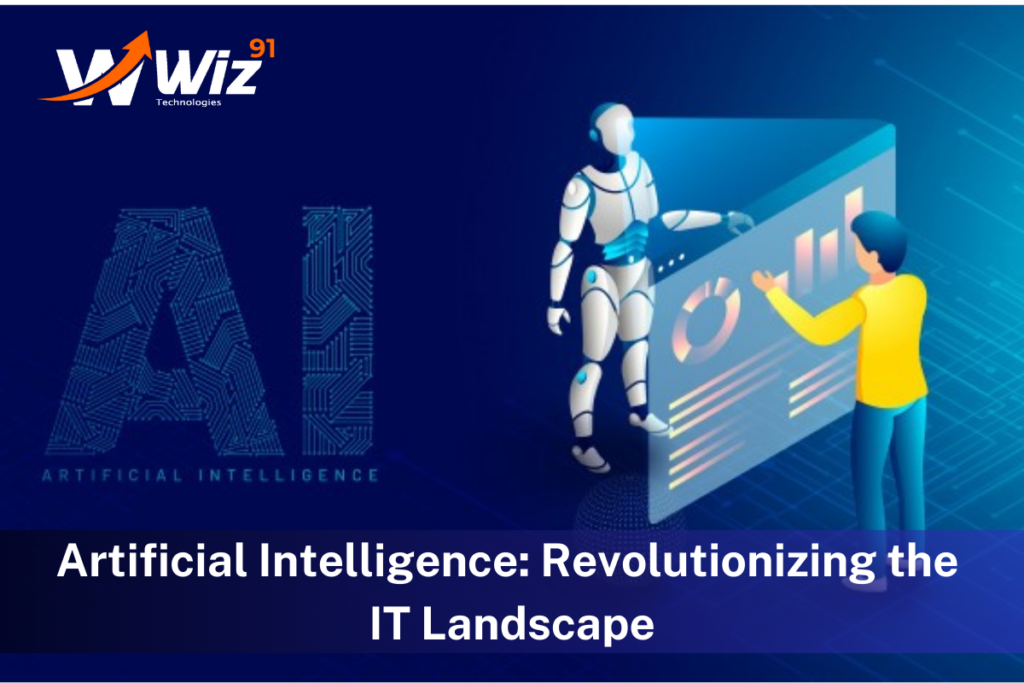Introduction
Artificial Intelligence (AI) is reshaping the world as we know it, and the IT sector is at the forefront of this technological revolution. With its ability to mimic human intelligence and perform tasks that traditionally required human intervention, AI is transforming the way businesses operate, accelerating innovation, and opening up new possibilities. In this article, we will explore how AI is revolutionizing the IT landscape, its applications across various industries, and the potential implications for the future.
Understanding Artificial Intelligence
Artificial Intelligence refers to the development of intelligent machines that can perceive, reason, learn, and make decisions based on data. It encompasses a wide range of technologies such as machine learning, natural language processing, computer vision, and robotics, among others. AI systems are designed to analyze vast amounts of data, recognize patterns, and make predictions or recommendations without explicit programming.
Applications of AI in the IT Sector
- Automation and Streamlined Processes: AI enables the automation of repetitive and mundane tasks, freeing up human resources to focus on more complex and creative endeavors. It can automate software testing, infrastructure management, data analysis, and cybersecurity, resulting in increased efficiency and reduced costs.
- Intelligent Virtual Assistants: AI-powered virtual assistants like Siri, Google Assistant, and Amazon Alexa have become ubiquitous. These assistants can understand voice commands, perform internet searches, set reminders, and control smart devices. They leverage natural language processing and machine learning algorithms to improve their understanding and response capabilities.
- Data Analysis and Predictive Analytics: AI algorithms excel at analyzing massive volumes of data and extracting valuable insights. In the IT sector, AI enables predictive analytics, allowing businesses to make data-driven decisions, optimize operations, and identify patterns or anomalies that may not be apparent to humans alone.
- Cybersecurity: With the rise of cyber threats, AI plays a crucial role in enhancing security measures. It can detect and respond to security breaches in real time, identify suspicious patterns, and learn from past incidents to fortify defenses.
- Intelligent Chatbots: Chatbots powered by Artificial Intelligence have transformed customer service in the IT industry. These virtual agents can interact with users, answer queries, provide personalized recommendations, and resolve issues. They improve customer satisfaction and reduce the burden on human support teams.
- Natural Language Processing: AI’s ability to understand and generate human language is a breakthrough in the IT sector. Natural Language Processing (NLP) enables systems to interpret and respond to written or spoken language, enabling applications like language translation, sentiment analysis, and voice recognition.
- Computer Vision: AI-driven computer vision has opened up opportunities for image and video analysis. It enables applications like facial recognition, object detection, autonomous vehicles, and quality control in manufacturing processes.
The Future of Artificial Intelligence in the IT Sector
As AI continues to advance, its impact on the IT sector is only expected to grow. Here are a few potential implications for the future:
- Enhanced Decision-Making: AI’s ability to process and analyze vast amounts of data can significantly enhance decision-making in IT. Businesses can leverage AI-driven insights to identify trends, optimize processes, and drive innovation.
- Personalized Experiences: Artificial Intelligence enables personalized experiences by understanding user preferences and behavior. In the IT sector, this can lead to highly customized products, services, and recommendations, enhancing customer satisfaction.
- Continued Automation: Automation will continue to be a key driver in the IT industry, with AI at its core. More tasks and processes will be automated, enabling organizations to achieve greater efficiency and productivity.
- Ethical and Privacy Concerns: As AI becomes more pervasive, concerns regarding ethics and privacy will arise. Ensuring responsible AI development, addressing biases, and safeguarding sensitive data will be critical considerations.
Conclusion
Artificial Intelligence is revolutionizing the IT landscape, transforming industries, and enabling new possibilities. From automation and data analysis to cybersecurity and personalized experiences, AI has become an integral part of the IT sector. As AI continues to evolve, it holds immense potential to reshape businesses, drive innovation, and unlock new frontiers in technology. Embracing AI and understanding its implications will be crucial for organizations to thrive in the future IT landscape.










